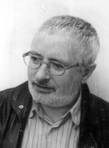Witcraft by Jonathan Rée and The History of Philosophy by AC Grayling review – head to head philosophy
Not many histories of philosophy begin with Hamlet. Jonathan Rée, however, starts his new book in this unconventional way, largely because he is bored by what he calls the “well-worn plots and set-piece battles” of orthodox accounts of the subject. Philosophy, he believes, contains far more variety, invention, originality and oddity than we give it credit for. Showing this means stretching the definition of “philosopher” beyond the usual suspects (Hobbes, Locke, Hume, Bertrand Russell) to include such authors as Cervantes, Coleridge, Adam Smith, Tom Paine, Mary Wollstonecraft and Mary Ann Evans (George Eliot), along with a rich assortment of academic oddballs and minor eccentrics.
There is the 18th-century Irishman John Toland, for example, rumoured to be the illegitimate offspring of a priest and a prostitute, who started life as an Irish-speaking shepherd in Donegal and ended up as a renowned European intellectual admired by Leibniz and Voltaire. Born a Catholic, Toland became a militant Presbyterian in Glasgow, a free thinker in Holland (he might even have invented the term “free thinker”, along with “pantheism”) and an intellectual bruiser in the coffee houses of Oxford. He dabbled in occultism, mastered nine languages and roamed a London underworld of religious heretics, shady political operators and radical republicans. He may also have seduced the Electress Sophia of Brandenburg – not bad going for a Donegal shepherd. You won’t find his name in many philosophy textbooks, however, since unlike the modern Oxford philosopher Gilbert Ryle he showed not the slightest interest in the logical difference between the phrases “nothing chatters” and “nothing matters”. Ryle claimed to have used this distinction to talk a student out of suicide, an example of the tutorial system at its most effective.
Rather than whisking us from one philosophical peak to another, Witcraft wanders in the fertile valleys between
The difference between them is clear from their writing. Rée is entertaining and stylish, Grayling is lucid but lifeless
Continue reading...Terry Eagleton's Blog
- Terry Eagleton's profile
- 1253 followers



